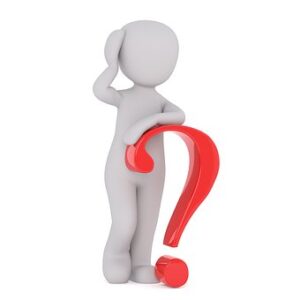Hey, everyone!
A bit of a change-up, this month, as I give you a peek into my world of writing.
OH! No, no, no! Don’t click away!
I promise: you’re going to have fun.
Here we go ….
Try this when you get bored:
1. Corral a few writers in a room.
2. Ask, “Do you use the Oxford comma?”
3. Stand back and watch the fireworks.
When it comes to the series of commas in a list (serial commas), writers are often asked:
“Do you leave out the last comma in the series?”
People are referring to the Oxford comma, which I will explain in a moment.
My friends call me the “Word Nazi” (imagine what my enemies must call me!), so you can probably figure out my answer.
I use the last comma in a series. I don’t leave it out.
I don’t give it a special name.
I just call it, ‘Doing my job.’
I also use question marks, periods, and exclamation points.
No one asks about those.
Huh.
What’s the big deal?
I’ll let you in on the where-this-originated part of the puzzle in a bit, but right now I can tell you:
I have no idea why using proper punctuation causes this kerfuffle.
(Lookie there. I found a way to use the word ‘kerfuffle.’ Yay!)
Serial commas are basic punctuation,
used to set items in a list apart from each other
Dictionary.com weighs in

Yes, the term revolves around Oxford University.
“… this [Oxford] mighty comma is a much-appreciated tool in our never-ending quest to convey meaning as clearly as possible.” *
This is the same reason the Oxford University Press and the Chicago Manual of Style recommend adhering to the serial comma rule.
So, I’m in good company.
And, yes: ‘Oxford’ comes from the stance of the Oxford University Press on the final comma in a series.
OK. There’s some background.
Here’s the fun part
Let’s see what can happen without that last comma, and then I’ll explain where all the kerfuf … um … commotion originated.
Example 1:
“My heroes are my parents, Superman and Wonder Woman.”
Zow-IE ! Really?
Superman and Wonder Woman are your p-a-r-e-n-t-s?!
I didn’t even know they had a kid.
Shoot, I thought they were just comic book characters!
I assume there are three heroes listed, here:
“My heroes are my parents, Superman, and Wonder Woman.”
See how vital that so-called extra comma can be?
For these, I’ll let you figure out what they’re supposed to say.
Examples 2-4: *
Here is an infamous oldie-but-goodie. Dictionary.com tells us it may be from a newspaper caption:
“Among those interviewed were Merle Haggard’s
two ex-wives, Kris Kristofferson and Robert Duvall.”
On a magazine cover:
“Rachael Ray finds inspiration in cooking her family and her dog.”
 From the caption of a British royal family photo:
From the caption of a British royal family photo:
“Seated at the front (l-r): William, Prince George, Catherine
holding her daughter and the Queen.”
(No, the queen was not on Kate’s lap!)
Where did this start?
Oddly enough, it was all about money 67 years ago.
Really.
In 1953, a large newspaper organization – trying to save space and leave more room for advertising (no, I’m not making this up) – changed its policy and eliminated the last comma in a series.
Yep.
These newspaper folks made a unilateral decision to ignore the guidelines and earn more money with their publication, but this grammar rule hasn’t changed.
An easy way to think through the process
Notice, in the examples, the lack of comma always means: the last two items become one item.
If you’re not sure, here’s something I learned while living in Louisiana (U.S.) for seven years. I use it as my reminder:
‘… red beans, and rice’ are two separate items on the dinner table,
while a favorite singular dish is the combined = ‘red beans and rice.’
Try this as your reminder template.
Easy, peasy!
When I edit or proof for you …
You can probably tell I’m a big fan of leaving the last comma in a series.
It’s the only way to ensure clarity for your online – or on paper – project.
Hey! It’s what I do!
Join the Conversation
I wonder how many of my readers even knew about this issue before today? (Believe me, your editor knows about it.)
Or, how many have strong pro/con feelings about it?
To me, it’s not an argument. I follow the rules.
Let us all know why you use (or don’t use) the Oxford comma.
I look forward to the discussion.
Please share this post, subscribe so you won’t miss next month’s offering, and scroll down to join the conversation in the comments section.
Let’s all learn from each other!
* Captured from https://www.dictionary.com/e/s/serial-comma/#is-it-the-serial-comma-or-the-oxford-comma on November 15, 2019


Thanks, Brian!
Glad you enjoyed the article. I had fun with it.
(And yes … I agree there may be a comment about society in general with this issue!)
Yes – and ‘mature’ writers take note – since we are now typesetting instead of typewriting, only one space goes after the end of a sentence. (When I physically set type during a printing class, I learned the diff.)
If you just can’t get the hang of it, you can run a find/replace for any character + two spaces and change them to one space.
And Brian, “Yep!” on high school in the early ’70s. Fortunately, our teachers had us keep the last comma, but that may be because I had an English major along with my science-y stuff. Not sure what the other classes did.
Helpful to me now as I work with a publisher who follows the CMOS (Chicago Manual of Style) for formatting.
Thanks for stopping by, and we’ll see you here on April 1st when the topic covers the most important item in our project ‘tool boxes.’ K.
What a great article! I’m forwarding it to our home school co-op’s writing teacher, as just a few weeks ago, I subbed and spent the whole lesson on proper comma usage, including a few of your examples and others, with special guest – the Oxford Comma (duhn, duhn, Duhn!) 😉
Interesting info about why it disappeared. I’m with you and Brian on the greater societal statement.
Thanks for making these so fun to read, too. Your little editorial comments make me chuckle. And congratulations on finding a way to use the word kerfuffle; it took a bit of experimenting just to spell it, much less use it in context!
Blessings to your work – thanks for keeping American writing beautiful! 🙂
Robyn,
Glad you enjoyed and can use further. As a former teacher (who insisted on proper grammar and punctuation even in biology classes), you’ve made my day. How nice to pass this information on to the next generation.
I do have fun with these posts and it makes all the work worth it when people like you and Brian appreciate the effort.
‘Kerfuffle’ is fun, isn’t it? Juuuust before I published this post, I heard someone use it. What a surprise!
I also found it surprising that – if you misspell kerfuffle – Spell Check has the correction. I didn’t expect it to be in the dictionary. (That would be an interesting post, wouldn’t it? I wonder how the spell check people decided what went onto the list? Hmmm.)
Here’s hoping you have a great rest-of-your-week.
Thanks for stopping by and adding to the discussion, K.